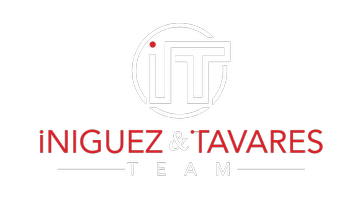
7 Essential Questions to Ask your Lender
Having a list of mortgage questions to ask potential lenders is a great start. We recommend talking with a couple of them to understand what programs they offer and to make sure that their communication style works for you. This is really the first step in your home-buying journey…once you are pre-approved and have a solid idea of what your purchasing power will be, you can shop with confidence. Let us know if you need a referral to a few outstanding lenders. 1. HOW MUCH MONEY CAN I BORROW TO PURCHASE MY HOME? Lenders will most likely consider your income level and compare that number with your debt, employment status and your credit history. Talk to your lender about getting pre-qualified for a mortgage before you start shopping for a new home. Want to be even better prepared for making a standout offer, take the extra step of getting pre-underwritten. Doing your homework will make the whole experience go more smoothly. 2. HOW MUCH MONEY DO I NEED TO PUT DOWN? To get the best rate and terms for your loan, try to put down at least 20 percent. Although, there are a variety of programs to choose from with many allowing for lower down payment options. Your down payment amount will often affect other variables such as your interest rate, terms and monthly payments. Be sure to ask your lender which programs you are eligible for based on income, employment and credit. If choosing a down payment option of less than 20%, be sure to ask if mortgage insurance is required and what the cost will be. Even if mortgage insurance is “lender paid,” it’s likely passed on as a cost built into your mortgage payment, which will increase your rate and monthly payment. Understanding all of your options will allow you to choose a program which works best for you. 3. WHAT IS THE INTEREST RATE? Right away, you should ask your lender for rate quotes as well as the corresponding annual percentage rate (APR) for the loan. The APR is a way of measuring the full cost a lender charges per year for the funds you are borrowing. The APR combines the total amount of interest payable along with the cost of other fees and charges, averaged over the term of the loan. Knowing the APR of each loan product will allow you to compare rates more accurately among lenders. Do not be afraid to shop around until you find a lender and program that works best for you. 4. WHAT IS THE DIFFERENCE BETWEEN A FIXED-RATE AND AN ADJUSTABLE-RATE MORTGAGE? A fixed rate mortgage has an interest rate that will remain unchanged for the life of the loan. Most fixed rate loans have either a 15 or 30 year term, which means your payment will remain constant for the length of that term. Adjustable-rate mortgages, or ARMs, have interest rates that change based on the market, so your payments will go either up or down periodically. Generally, the initial interest rate of an ARM is lower than that of a fixed rate-rate mortgage. After the initial period ends, your interest rate and your monthly payments will likely fluctuate. Most ARMs start with an initial fixed interest rate for a specific period of time, usually 5, 7, or 10 years. It is important to compare these two types of mortgages to find what is best for your needs and situation. 5. HOW MANY POINTS DOES THE RATE INCLUDE? A point is a fee paid to the lender at closing in exchange for a reduced interest rate. One (1) point is equal to 1% of your total loan amount. Be sure to ask your lender how many points are included in the quoted interest rate and what the benefits of buying more or fewer points may have for you. 6. WHEN CAN I LOCK IN THE INTEREST RATE? A rate lock guarantees that the lender will honor a specific rate at a specific cost for a set period. Interest rates always fluctuate. Sometimes, locking in a low rate can really pay off. Ask your lender when you can lock in a particular rate, how long the rate will remain locked, and if there is a fee for the rate lock. Keep in mind that sometimes lenders will offer lower interest rates for shorter-term locks and higher interest rates for longer-term locks. Fees are typically charged by the lender if your lock period expires or needs to be extended. Be sure to understand your timelines before locking in an interest rate and what those fees might be if the need arises. 7. WHAT ARE MY ESTIMATED CLOSING COSTS? Closing costs are the fees the seller and buyer pay to complete a real estate transaction. Closing costs can vary. Customarily in Santa Clara County, most of the closing costs paid by the buyer are related to their mortgage. Buyers can save money on closing costs by choosing a lender carefully. Common closing costs can include loan-origination fees, appraisal fees, credit report fees, appraisal fees to name a few. Your lender should provide you with a loan estimate showing the approximate costs of your loan so you may budget accordingly. These are just a few of the questions you should review with your lender. These questions are designed to help you start the lender interview process, get an initial understanding of what lending options are available to you and provides a great opportunity for you to learn their communication and customer service style.
Categories
Recent Posts






